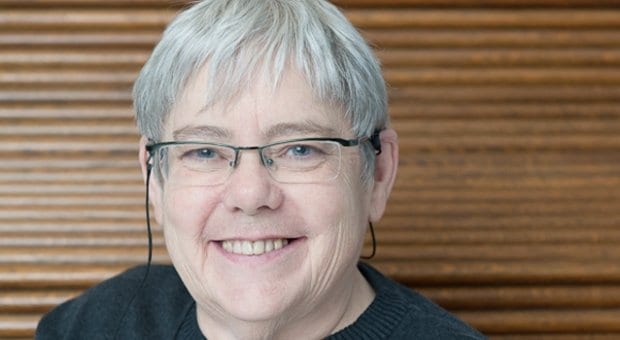Lesbian lawyer and human rights trailblazer Barbara Findlay says the Canadian legal landscape has changed in ways she never expected to see, much less shape, in her 36 years representing oppressed people.
Findlay was one of 30 people recognized with a Queen’s Diamond Jubilee Medal by Vancouver Centre MP Hedy Fry at a ceremony Jan 17.
“I was very surprised and honoured to have been selected for the award,” Findlay told Xtra over the phone from Ottawa, where she was visiting family and unable to attend the ceremony.
“I feel really good. I’m really delighted that the recipients of this award have included many queer people,” adds findlay.
“This would have never happened 15 or 20 years ago,” she continues. “I’ve been very privileged to be practising as a lesbian lawyer at a time when the Charter of Rights has enabled us to transform the legal landscape in Canada.”
Findlay has represented the queer community in a number of landmark cases, including same-sex marriage in BC and establishing the right of two lesbian mothers to both be registered on their child’s birth certificate.
She has represented a transgender woman’s right to be considered a woman in Nixon v Rape Relief; a lesbian couple’s complaint against the Knights of Columbus for refusing to rent them a wedding hall; and an incarcerated transgender woman’s right to have sex reassignment surgery and to be housed in a facility for women.
She has also represented unions in labour disputes and worked for the Legal Services Society in poverty law.
Findlay is a founding member of the Canadian Bar Association’s queer lawyers group, the Sexual Orientation and Gender Identity Conference (SOGIC), and in 2001 she became the first openly gay lawyer in Canada to be recognized with a Queen’s Counsel designation.
Outside the courtroom, Findlay co-founded the December 9 Coalition, a working group of community leaders who advocated for queer rights in the late 1990s. She was also a member of the Alliance of Women Against Racism Etc (AWARE), where she conducted hundreds of unlearning-oppression workshops for businesses, university classes and lawyers.
For Findlay, identifying the components of oppression is key to creating social fairness and equality.
“I hope that each of us learns to recognize that oppression and privilege operate similarly across many different areas,” she says.
“I’m a 60-something, fat, white, cisgender lesbian who was born working-class and raised Christian and anglophone on the Prairies,” she says. “As a fat person who is lesbian and a woman, I experience discrimination, and as a white lawyer and as an anglophone I experience privilege.”
Only when a person recognizes the ways in which they are oppressed are they better able to understand the ways in which they contribute to the oppression of others, she says.
Findlay has faced numerous obstacles throughout her career but says the biggest roadblock was the homophobia she faced early on.
“As a lawyer, the very idea of a lesbian lawyer was an unthinkable concept because lesbians and gays were invisible, and certainly nobody expected that someone would identify as a lesbian lawyer,” she says.
“I experienced a great deal of push-back,” she says.
“I was very deliberately out, and I was in the Law Society and on the Canadian Bar Association’s equality committee with the goal of making queers visible.”
“That was a difficult journey,” she admits.
“I’m happy to report that it’s not as difficult a journey now as it was then,” she says. “As the laws treated lesbians and gays with more equality, it became easier for queer lawyers to be out and practising law.”
While society has slowly become more accepting, findlay says the fight for gay rights is not over, especially when it comes to youth-targeted bullying.
“Kids still have to navigate through the landmines of homophobia, and they shouldn’t have to,” she says.
Findlay is currently working on eliminating gender markers on passports and birth certificates. She says that because some children are born intersex, the gender identification marker required on birth certificates is “very problematic” and in need of review.
“What most people don’t know is that barbara findlay contributed enormously to the law in Canada by creating case law that made legislation change their discrimination, and she used the Charter as her biggest tool,” Fry told Xtra after the medals ceremony.
“Barbara didn’t only do work for the queer community; barbara did work for minority groups. She supported aboriginal women’s rights, she went to bat for feminist issues, she went to bat for anybody who was a minority group and who were marginalized and discriminated against under the law,” Fry says. “She’s an extraordinary woman.”

 Why you can trust Xtra
Why you can trust Xtra


